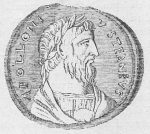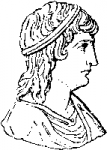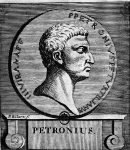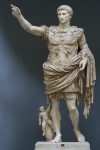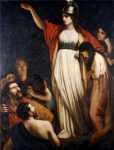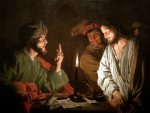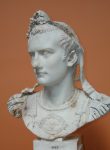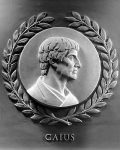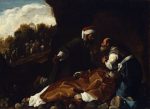Infamous figure of Roman history, granddaughter of the first Emperor Augustus, and mother of the Roman Emperor Nero by her first husband. She poisoned anyone (probably including her third husband, the Emperor Claudius) who stood in the way of securing the throne for her son. He in turn murdered her.
Rabbi and Jewish teacher in Palestine. After the Romans erected a pagan temple in Jerusalem, he joined with Bar Kokhba leading a fiery revolt, but was killed.
Judean king. He killed John the Baptist.
Neo-pythagorean. He was reputed to have worked miracles, came to be worshipped by some devotees, and thus represents magic, mystery, and the hope for miraculous intercession.
Author. He was a student of a variety of "mystery religions" (and thus of mysticism), as well as a very successful satirist who combined a critical eye with humor.
Physician. Aretaeus was second only to Hippocrates in his renown as a physician in the ancient Greek world, and his life expressed the value of helping humanity through the healing arts.
Founder of the Roman Empire. Augustus never assumed the title of Emperor, preferring to maintain the forms of the Republic that he ended. His long career was uniquely successful, both in winning and using power, and after a bloody beginning he became the embodiment of an enlightened despot, one who seems genuinely concerned with the welfare of the state and its inhabitants and deft in his political touch. He was reputed to have said on his death bed "Acta est fibula" (the play is over) or, alternatively, "Plaudite amici, comedia finita est" (applaud friends, the comedy is over), words that often concluded Roman stage plays.
Writer of fables. He helped popularize Aesop's fables.
Jewish rebel. When the Romans decided to erect a pagan city on the site of Jerusalem, Bar Kokhba died leading a rebellion that was savagely put down by the Emperor Hadrian.
Philosopher. His gnosticism drew on Christianity and many other philosophic and religious strands.
A Celtic queen. She led a violent and for a time successful rebellion against Roman rule.
Emperor. He was famed for cruelty and excesses.
Founder of Christianity. Figure on whom the Christian faith is founded. His altruistic ethics, as presented in the four gospels, are revolutionary, especially the injunction to love others as oneself, to love one's enemies, and to assist the poor, the homeless, the hungry, the injured, those in prison, and in general, anyone in need, not only to assist them, but to see God in each one of them.
Stoic philosopher. Epictetus was one of the most profound expositors of the view that happiness can only be achieved by reducing and controlling our desires, not by realizing them. A slave by birth, he gained his freedom and became a celebrated philosopher. Though he never wrote, one of his disciples collected his teachings in The Enchiridion.



